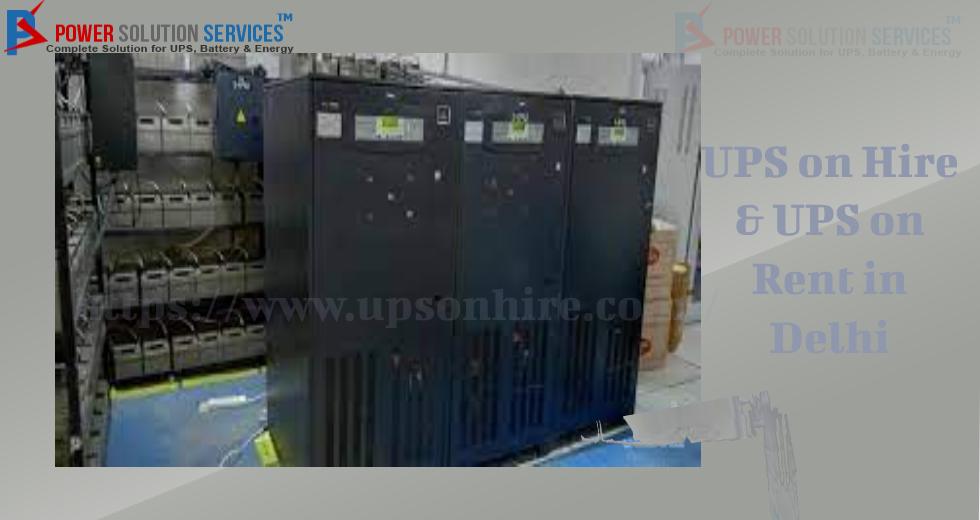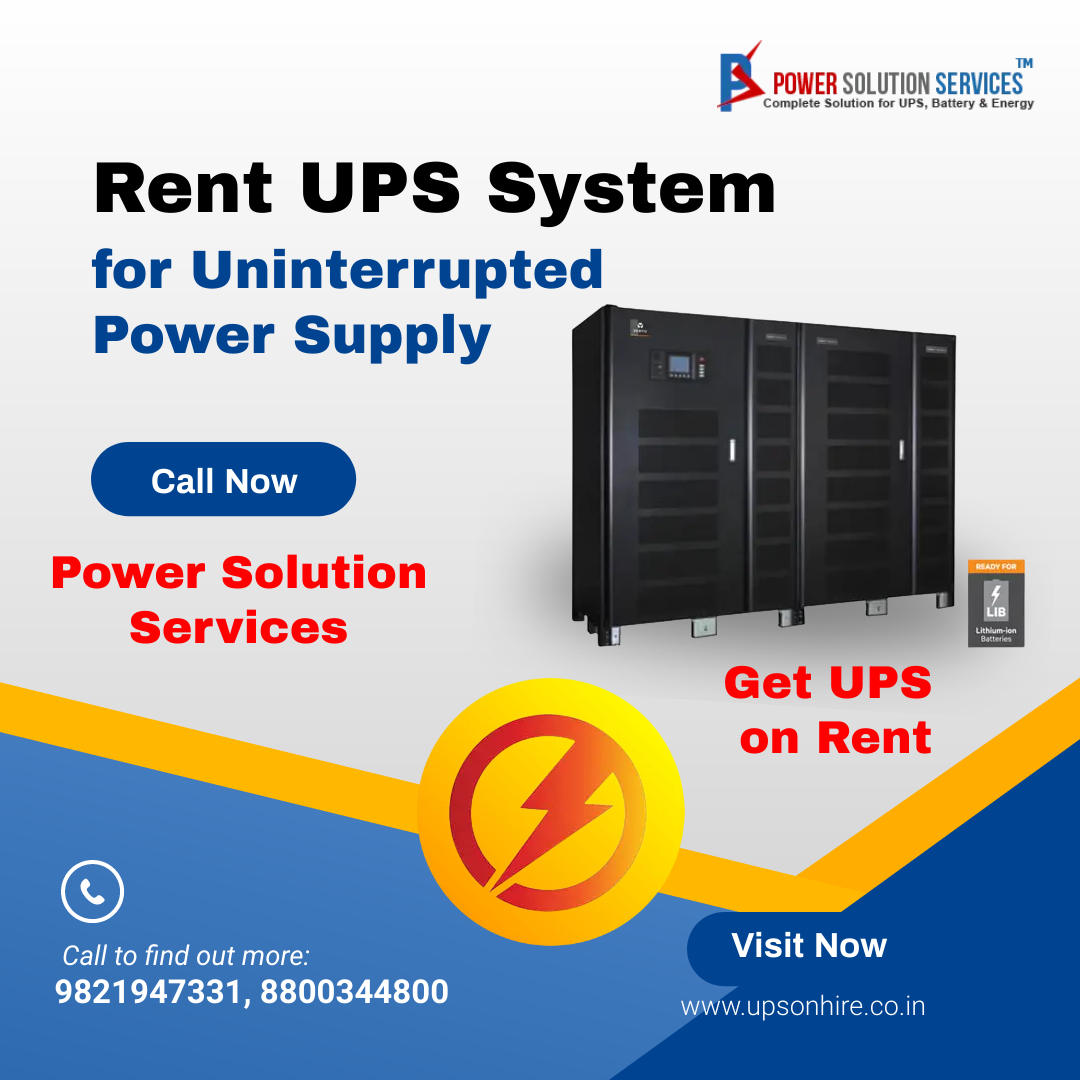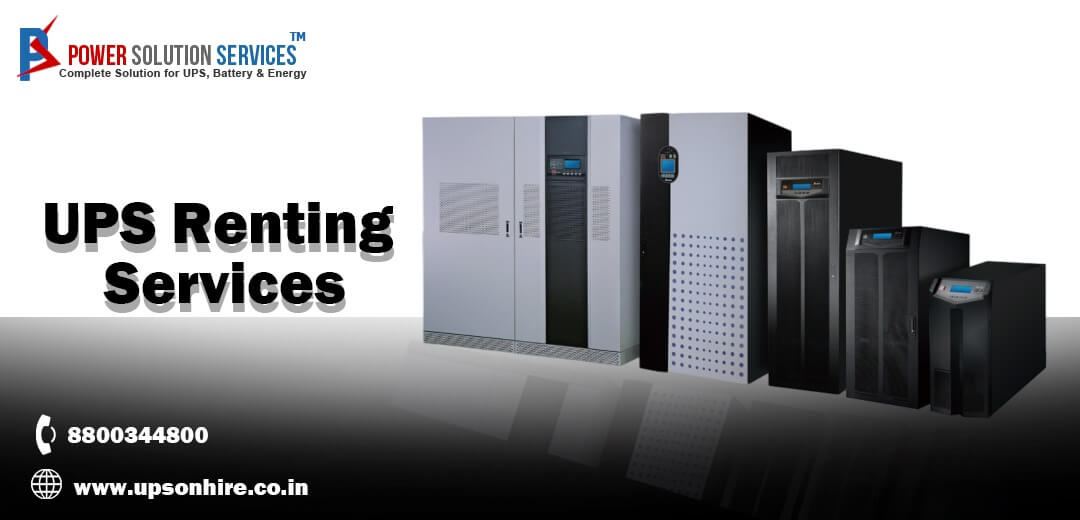About Us
“Power Solution Services” founded by Mr. Sanjeev Kumar Garg in 2001 at Vadodra (Gujarat), then did set up in Noida in 2004, is one of the Top AMC service provider for online UPS of Emerson/TATA Liebert & other branded make UPS Systems.
Learn MoreContact Info
- A-48, BLOCK-A, SEC-53, NOIDA 201301 (U.P.)
- +91-9315572838
-
marketing@powersolutionservices.co.in
service@powersolutionservices.co.in
admin@powersolutionservices.co.in
- by Power Solution Services
- Dec 19, 2024
What is the Difference Between a UPS and an Inverter?

Power outages can be annoying and at the same time highly damaging to businesses and people alike. Nobody wants switches or devices to get off in the middle of work such as during an important meeting, Even sensitive devices and equipment need power backup for their protection. UPS systems and inverters are two alternate solutions. But how are they different and which one best addresses your requirements? Let's break it down.
Understanding the Basics: UPS vs. Inverter
An Uninterrupted Power Supply or a Power Backup device for that matter is a device that will switch on immediately when there is a power outage. This device is very important in systems that require a constant supply of power and cannot do without it even for a minute, computers, servers, and medical equipment are a few instances where this is acceptable.
An inverter on the other hand is an electrical device which has the ability to convert any stored Direct current into AC Power. Turning on time of an inverter is longer as compared to a UPS, however, an inverter is widely used in households as to why it is preferred if footage or appliances require an uninterruptible power supply.
Key Differences Between a UPS and an Inverter
Speed of Power Backup
The greatest distinction between CPP and the inverter is the time they take to provide power during an outage. A UPS goes on almost instantly, that is in milliseconds, and this is commendable for pieces of equipment that need to be continuously powered. On the other hand, an inverter takes several seconds before switching on, the result being a soft interruption of the power supply.
Purpose and Use Cases
UPS systems on the other hand are best utilized in applications where specific equipment like computers, medical devices and even servers are safe from a sudden interruption of power. This offers a core importance in sectors where a brief lapse of time is enough to inflict serious repercussions.
Inversely so, instead of allowing for delicate features, inverters allow for the use of common domestic appliances such as fans, lights, and especially refrigerators, in prolonged periods of inactivity. However, they are not suitable for devices that are based on the instant restoration of power.
Power Storage and Conversion
Power storage batteries or units of power backup batteries are also integral parts of UPS and inverter systems. The units normally have separate batteries basement which makes the compact design of A UPS systems. In comparison, a typical inverter needs additional batteries which eventually occupy extra space for installation.
Cost and Maintenance
Regarding the price in the marketplace, the pricing of UPS systems can be said to be on the higher side because of the advanced technology they utilize, which allows for a very quick response time. In contrast, Inverters are more economical, which allows them to be available for common residential usage.
In regards to upkeep, both systems should have maintenance done from time to time to keep the batteries healthy. However, since UPS systems are normally in heavy use, they may also require more battery changes than other types of systems.
Power Load Handling
Inverters seem to be more practical for homes that have multiple equipment as they can sustain the equipment for longer periods. UPS systems on the other hand only provide a short to medium range of power and are meant to backup sensitive equipment and provide stability to them until a generator starts working.
Read Also:- Why Should You Rent a Battery Instead of Buying One?
Which One Should You Choose?
The Inverter or the UPS? The answer depends on what you need:
1. You need a UPS if you want backup for surveillance systems, hospital and server equipment so that no damage comes to the system, and computers, as this is particularly useful for offices, hospitals and data centres.
2. You need an Inverter if all you care about is keeping some electrical appliances connected when the electricity is cut for an extended period. That is a cheaper variant for the more general use.
Conclusion
Choosing the right power backup system is crucial for ensuring uninterrupted comfort and productivity during power outages. If committing to a purchase feels overwhelming, services like UPS rental or UPS systems on lease in Sonipat are practical and cost-effective alternatives. At Power Solutions, we specialize in providing developed power backup solutions for both residential and commercial needs. Our expert team ensures you get reliable and efficient systems without the expense of a huge advance investment.
Ready to stay powered up without interruptions? Contact us today to find the perfect power backup solution for your space!
Related Post
Popular Post
 20 Aug 2022
20 Aug 2022
UPS on Hire & UPS on Rent in Delhi, NCR - Powering Your Business with Flexibility and Reliability
In today's fast-paced business environment, uninterrupted power supply is crucial to keep operations...
Read More 20 Aug 2022
20 Aug 2022
Unlocking the Power of UPS Renting Services: The Secret Ingredient in Delhi NCR
In a dynamic market like Delhi NCR, efficient logistics can make or break a business. UPS's renting ...
Read More 20 Aug 2022
20 Aug 2022
How to Use Emerson UPS AMC & Repair Services To Desire
When it comes to ensuring the reliability of your critical power infrastructure, Emerson UPS (Uninte...
Read More


